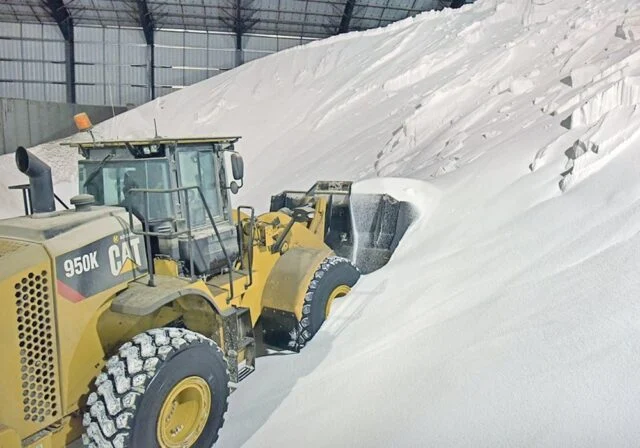
Billionaire project makes Nigeria’s urea fertilizers gain traction in Brazil
Aug, 17, 2022 Posted by Gabriel MalheirosWeek 202233
The war in Eastern Europe, the high costs of natural gas to produce nitrogen-based fertilizers in Europe, and the US$ 2.5 billion investment by African billionaire Aliko Dangote, CEO of the Dangote group, to build a fertilizer complex in Nigeria “from scratch” changed the picture of the list of urea suppliers to Brazil between January and July of this year. Urea is the nitrogen fertilizer most used in Brazilian crops, especially in corn.
Brazilians imported 3.8 million tonnes of urea in the first seven months of 2022, mainly from Oman (22%), Nigeria (19%), and Qatar (18%), according to a report prepared by Consultoria Agro of Itaú BBA based on federal government data.
Standing out in these operations, Nigeria went up the list and, in less than a year, went from the fifth largest supplier, with a share of 7% in 2021, to the current vice-leadership. In the same interval, Russia, at war with Ukraine, dropped from second to fourth place.
Purchases of Nigerian urea grew by 174% in 2022, reaching 736,000 tonnes, almost the same volume that Brazil imported from the African country last year. “The nitrogen market was more stressed in 2021, with a certain reduction in urea production in Europe, because the prices of natural gas [raw material for the fertilizer] skyrocketed; meanwhile, there was a large, uncommitted volume of new plants coming to market. Besides that, the logistics [from Nigeria] are excellent. Exporting to Brazil is risky, ” says Marcelo Mello, fertilizer director at StoneX consultancy.
Nitrogen complex
The Dangote group opened the nitrogen complex in Lagos, Nigeria, in two stages, with an eye not only on demand from Sub-Saharan Africa but also on the potential for sales to other regions, including Brazil. The complex adds almost 3 million tonnes to Nigeria’s urea production capacity, which, with the increase, will reach 5.8 million tonnes a year, says Luigi Bezzon, fertilizer and vegetable oil analyst at StoneX.
According to the African company, Nigeria consumes 1.5 million tonnes of fertilizers annually. During the inauguration of the most recent structure, Aliko Dangote – ranked 130th on Forbes’ list of the richest in the world, with a fortune valued at US$ 13.2 billion – said that the unit’s exports would go to Brazil (emphasizing at the time that Brazilians are heavily dependent on Russia), the United States, India, and Mexico, Reuters reported at the time.
See below the track record of the volume of urea imported by Brazi from some of the key suppliers of this product in the period between Jan 2019 to Jun 2022. The data is from DataLiner.
Urea imports into Brazil from key destinations | Jan 2019 – Jun 2022 | WTMT
Source: DataLiner (click here to request a demo)
The African company landed in the segment at a time when the prices of fertilizers were high and sold at prices much higher than those of two years ago. Mello recalls that the Asian group Indorama also produces nitrogen in Nigeria and has expanded its capacity.
Although some manufacturers have gained more space, the total volume of Brazilian urea imports (3.8 million tonnes) from January to July was 7.3% lower than in the same period in 2021. The reason for the drop, according to Annelise Sakamoto, an analyst at Consultoria Agro from Itaú BBA, is “more price and less availability.” Because of the price increase, producers have used fewer fertilizers and taken advantage of the soil’s nutrient banks.
Source: Valor Econômico
To read the full original article, please go to: https://valor.globo.com/agronegocios/noticia/2022/08/17/projeto-bilionario-faz-ureia-da-nigeria-ganhar-forca-no-brasil.ghtml
-
Meat
Oct, 14, 2022
0
USDA: Brazilian pork exports to grow 3% in 2023
-
Shipping
Nov, 09, 2023
0
Maersk expands operations in Brazil with new call in Rio de Janeiro
-
Ports and Terminals
Mar, 09, 2022
0
Paraná ports have settled aa new double handling record
-
Ports and Terminals
Nov, 29, 2023
0
Suzano Trials Autonomous Truck for Pulp Transportation at Itaqui Port

